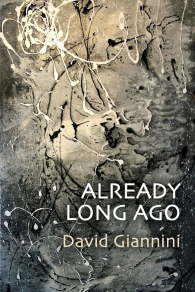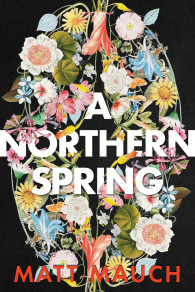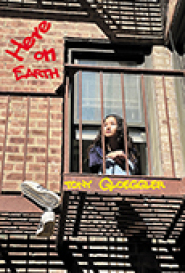
David Giannini, Already Long Ago,
Dos Madres Press, 2023.
ISBN 978-1-953252-79-1. 108pp. $21.00.
He has been nominated for The National Book Award. He has twice been nominated for the Pulitzer Prize. He has published more than 40 collections of poems and prose poems. His work has appeared in many national and international magazines and anthologies. He has received numerous awards, including the 2021 James Hearst Poetry Finalist Prize of the North American Review. His name is David Giannini. What’s that you say? You never heard of him? Well, you should. In fact, you should have a long time ago, but never mind. The sorry state of American poetry and how political correctness has gotten us there is a subject for another day. Today’s subject is Already Long Ago, Giannini’s latest book, the poems of which he “selected from a year’s worth of work [including] lyric and narrative poems, songs, prose poems, hybrid haibun, and short and long-lined haiku.”
I don’t know about you, but I always have my trusty Webster’s Unabridged at the ready when I’m about to read a new book of poetry, and if I don’t have to open it by the time I’ve read the last poem, I feel cheated, for I have little use for poets who cannot teach me a new word or two. David Giannini is a wonderful teacher. This is a partial list of the words he taught me: Tardis [sic] (acronym for Time and Relative Dimension in Space), withes (branches of an osier used for tying), gnomon (part of a sundial that casts a shadow), dittany (a bushy shrub), skift (something that is light), sposhy (slushy, dirty, and wet), rivulose (having irregular lines), garth (small yard or enclosure), tohubohu (a state of chaos; utter confusion), and my favorite, mondegreen (a mishearing or misinterpretation of a phrase in a way that gives it a new meaning.) Only Galway Kinnell taught me more. Of course, there is more to poetry than an instructive and impressive vocabulary. Like Kinnell, Giannini doesn’t pepper his poetry with a virtuosic vocabulary to show off. Yes, like me, you might have to consult that Webster’s, but after you’ve done so, and after you’ve gone back and read that poem again, you will, like me, come away with a deeper appreciation for the skill that went into the making of the poem, and of course, with a greater appreciation for the richness of the poem itself.
So let me share this richness by quoting some of it. Here is “Darwin Never Knew”:
Darwin Never Knew
how some gastropods arrived
on islands, tiniest snails
catching rides on wings or legs
of birds, and who then went sliming
toward their future….
Darwin never knew
a poet mystic in her shell might
applaud and shake wings
for thanks, but leave some
avian laws alone as too clawed
to enter a poem.
Darwin never knew
under some three trillion trees
on Earth, under the merely
one trillion stars packed
in the Milky Way, there are still
dreams inhabiting facts.
Here is “Song of the Sleepers”:
Moonlight never slaps
us, but lifts
a finger while we dream,
its poke
to mouth and ear,
we wake to ancient song
waves ashore, wish
our lips spoke light,
but hear
only cosmic mondegreen
even as more fingers lean
light, touch each other,
ray out
the moonlight a chef’s kiss
that we are excellent in being lit.
“the moonlight a chef’s kiss/ that we are excellent in being lit.” I hope you don’t mind. I had to do that. And I have to ask: Have we ever known that moonlight is a chef’s kiss? And have we ever known that sleeping lovers are excellent in being lit? Now we know, and we have David Giannini to thank. And please read the poem out loud, for it is a song.
And finally, here is “An Old Christian Monk Speaks While Walking with a Novitiate”:
As trees leaf out hills grow invisible
but rain lets us hear their stories…
If some flowers poke up through misgivings
don’t pluck them just add water…
Good luck doesn’t have to follow you
it unpacks its bags at the start…
Walking the garth you can look up
and this cloister is nothing but stars…
And there are mornings His wound is spread
by sunlight its gash on the floor…
Best forget Buddha he’s just too far
beyond the lanterns of our faith…
But even so perching on that crucified scarecrow
crows keep laughing.
What delicious ambiguity! Spoken like a good old Buddhist monk!
William Carlos Williams once said that “if it ain’t a pleasure, it ain’t a poem.” I say if it ain’t a poem by David Giannini, it ain’t the genuine pleasure it ought to be.
The poet is David Giannini.
The book is Already Long Ago.
The publisher is Dos Madres Press, Inc.
Do treat yourself to the pleasure of its pages.
J. R. Solonche
To order this book click here
Nominated for the National Book Award and twice-nominated for the Pulitzer Prize, J.R. Solonche is the author of twenty-six books of poetry and co-author of another. He lives in the Hudson Valley.
Matt Mauch, A Northern Spring,
Trio House Press, Inc., 2023.
ISBN: 978-1-949487-16-9. 208pp. $18.00.
Daniel Defoe’s A Journal of the Plague Year, when the Bubonic Plague devasted London, comes to mind when reading Matt Mauch’s A Northern Spring, an eyewitness account of the chaotic start of the final chaotic year of the chaotic Trump administration. It’s March, 2020, and Mauch finds himself in Northern Ireland when Trump announces a suspension of all travel from Europe to the United States, in an attempt to prevent people infected with Covid-19 from entering the United States. The suspension was to last 30 days. Trump’s announcement came on March 11, when Mauch’s book begins.
While the Aer Lingus return flight to Minneapolis for the group Mauch is with is still apparently scheduled to fly, they are all anxious, not to say frantic, while the situation unfolds. Mauch himself writes texts to his confidante P (wife? pal?) back home, as frequently as every half hour, expressing his thoughts and anxious observations. Indeed, at 8:31 AM on the 12th, he texts: “More and more the Troubles, as I speculated, seems to be perfect as a lens through which to see better our own violences, fractures, and feuds,” referring to the sectarian violence of the late 20th century that plagued Northern Ireland.
A Northern Spring consists of four sections, covering from Wednesday, March 11 until he finally boards his flight home on Sunday, March 15, and a CODA that takes place the end of May, when George Floyd is murdered by Minneapolis police. Each of the four sections begins with a PRELUDE, several pages of these text messages to P, and then twenty-five to thirty pages of verse, poems whose titles likewise sound like journal entries, though the poems are not so prose-like but more allusive and imagistic. “The parlor game that the self-quarantined and childless play as they toss a dry cough back and forth like a ball in a game of catch,” for instance, begins:
When you met me, I was the story
of a door that needed WD-40
Other titles include “Unable to hug with our arms and torsos and heads” (“We hug with our eyes and grow obese / with seeing,” the verse begins). And here’s another title that telegraphs the times:
Before the first case in Wuhan, before the primaries,
when Warren and Sanders were leading the race,
I was full of guarded optimism—too experienced,
to be sure, to fall whole cloth, but hopeful nonetheless
for the coming election year
In the Prelude to section 2,
Mauch further contextualizes the situation – the COVID response but the larger world picture, too. He writes, “P—The omnipresence of COVID-related signs, whether imploring diligent hygiene or
announcing the temporary cessation of business, bring me back to NYC post-9/11, to the makeshift fliers holding the faces of all the missing people, all the numbers to call if you’d seen
them.”
And again, at the start of the third section, it’s a quotation
from Clara Wrasse on the 1918 Spanish flu: “Chicago looks as tho it has got one foot in the grave & the other on a banana pealing. Everything is closed on account of that
epidemic.”
The poems likewise continue to echo the feelings of dislocation. “Field notes from the ecosystem ‘home,’ where we’ve been ordered under emergency powers to shelter for
three weeks, at least,” and “How long must it last before we return to burying pets in our yards, our kin in family plots?” reflect the panic and the disruption. The ultimate effect over four relentless days (not to mention the next couple of years) is captured in a poem from part 3, “We have graduated summa cum laude from their obedience
schools,” which begins:
We on a leash
know we are on a leash
but do not know
who’s walking us through the fog
When, at the airport, Sunday, March 15, he finally begins the slow, often delayed procession to his flight, trailing a kid in a Minnesota Twins ballcap, Mauch continues his frequent texts to P –at 8:46 a.m, 9:00 a.m., 9:17 a.m., 9:39 a.m. The Defoe-like chronicle proceeds at its frantic pace. Later on that Sunday he writes, again contextualizing the experience: “P—I will have to re-read The Plague ASAP and, in doing so, revisit myself in the form of old underlinings and marginalia.” He vows in the same text to read Marquez’s Love in the Time of Cholera. There were so many books we retreated to when the pandemic hit us. Boccaccio’s Decameron was one, Ling Ma’s Severance and Geraldine Brooks’ Year of Wonders were others.
The poem, “Naked truth” sums up the existential reality while
pinpointing the political chaos underlying it all:
Life is not
like the president
we vote for
but the president
we get.
The final ten-page CODA takes place in that other Northern clime, Minnesota, the weekend of George Floyd’s brutal murder by policemen. Again written diary-like, on Sunday, May 31, Mauch refers back to his experience in Northern Ireland, citing solidarity: “The people of Derry honor George Floyd with a minute of silence at the ‘YOU ARE NOW ENTERING FREE DERRY’ sign.”
The situation is still chaotic at
the end of the chronicle, but Mauch notes in the final pages (A Northern Spring is dedicated “for Minneapolis”): “”We are Minneapolis. And we’ll see what tomorrow
brings.” Defoe wrote over three centuries ago, “everyone looked on himself and his family as in the utmost danger...London might well be said to be all in tears.” The observation might apply to
Minneapolis in 2020, as well.
Three years later, this book reads like a memoir, contemporary
history, though the repercussions continue. Mauch’s picture of a fractured society nevertheless contains the seeds of healing.
Charles Rammelkamp
To order this book click here
Charles Rammelkamp is Prose Editor for BrickHouse Books in Baltimore, where he lives, and edits The Potomac, an online literary journal. http://thepotomacjournal.com. His photographs, poetry and fiction have appeared in many literary journals. His latest book is a collection of poems called Mata Hari: Eye of the Day (Apprentice House, Loyola University), and another poetry collection, American Zeitgeist, is forthcoming from Apprentice House.



